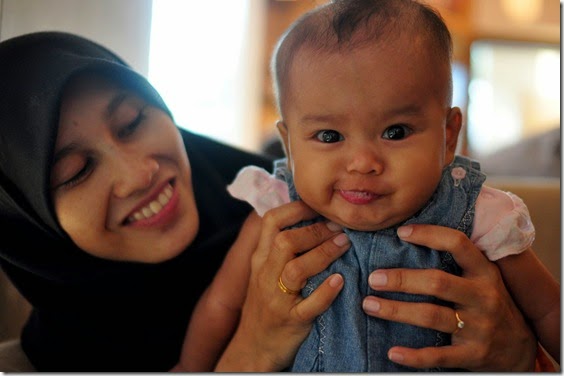On the 26th of May 2014, the Committee on the Rights of the Child considered the combined fourth to fifth
periodic reports of Jordan on the situation of the implementation
of the Convention on the Rights of the Child (CRC) in the country.
IBFAN presented an alternative report to
inform the CRC Committee on Jordan’s situation on the issue of infant and young
child feeding.
General overview of breastfeeding in
Jordan
In Jordan, the rate of early initiation of
breastfeeding is low (38.8%) what, compared to the very high rate of
institutional delivery (almost 99%), questions the quality of the training
provided to health professionals. Furthermore, almost four children out of five
are not exclusively breastfed until 6 months of age, while more than 45% of the
infants under 1 month of age are fed with infant formula and some 24% of the
children of 4-5 months of age are weaned prematurely. These data should be
assessed in close conjunction with the high stunting rate of the
children under 5 years of age are stunted (8%). The country has
implemented most, but not all, of the provisions of the International Code of
Marketing of Breastmilk Substitutes as legally enforceable measures.
A general lack of data on “baby-friendly” hospitals also has been observed. Similarly, a lack of data on HIV/AIDS and infant feeding has been noted. This is especially concerning given that the latter infection is still stigmatized and the population does not receive adequate and comprehensive information about it.
Besides, the alternative report emphasized
that not all working women are benefiting from maternity protection and many
women still experience occupational segregation.
Finally, it has been highlighted that,
despite a national policy and training programme on infant and young child
feeding in emergencies, support to optimal breastfeeding practices in refugees’
camps is not ensured and refugee women often face difficulties to access to
health care facilities.
Discussion on infant and young child
feeding
The CRC Committee pointed out that the
rate of exclusive breastfeeding is low and asked if there was any national
campaign to encourage mothers to breastfeed for a longer period.
The delegation of Jordan answered that Jordan has
implemented a law prohibiting the marketing of breastmilk substitutes. It stated that awareness-raising campaigns to promote breastfeeding have
been launched and information on the best way to incorporate breastfeeding
within the family routine has been disseminated. The delegation also
explained that there is a national guidance for medical professionals on the
circumstances in which powdered milk should be recommended.
In addition, the delegation also explained
that Jordan has the lowest rate of HIV/AIDS in the Arab region and that the
national HIV/AIDS strategy includes reintegration measures for infected persons
and awareness-raising campaigns on the transmission of the virus.
Concluding Observations
In its Concluding Observations, the CRC Committee recommended Jordan to
strengthen its mechanisms for data
collection (para 8 (b)). Regarding health issues, it urged the country to “ensure
equal access to quality health services
by all children, through the adoption of measures aimed at prioritizing
children in the most disadvantaged and marginalized situations, especially
child refugees, and by addressing child
malnutrition and infectious diseases” (para 44). The Committee also
emphasized the necessity to “improve access
to quality, age-appropriate HIV/AIDS, sexual and reproductive health
information and services” (para 48).
However, the Committee issued no direct
recommendations related to infant and young child feeding.

No comments:
Post a Comment